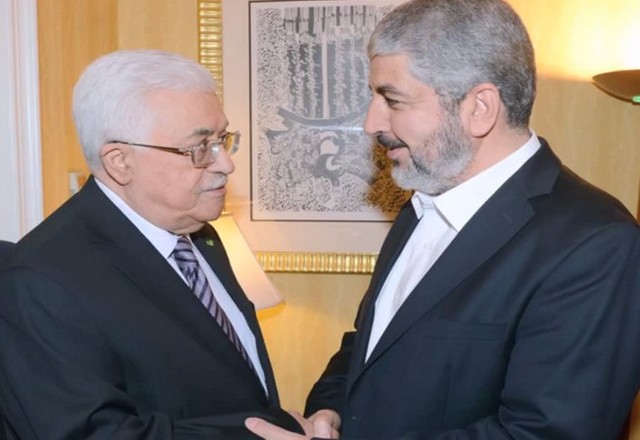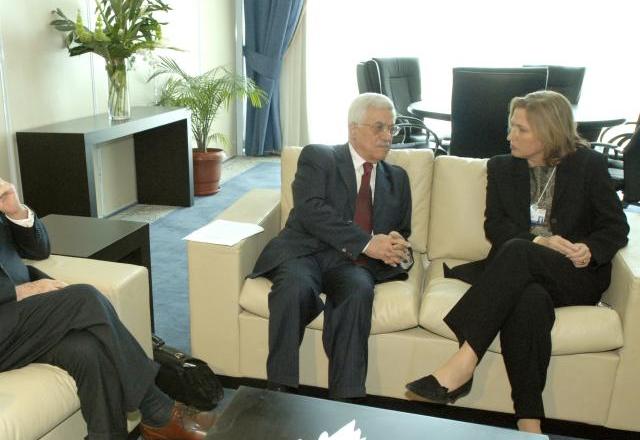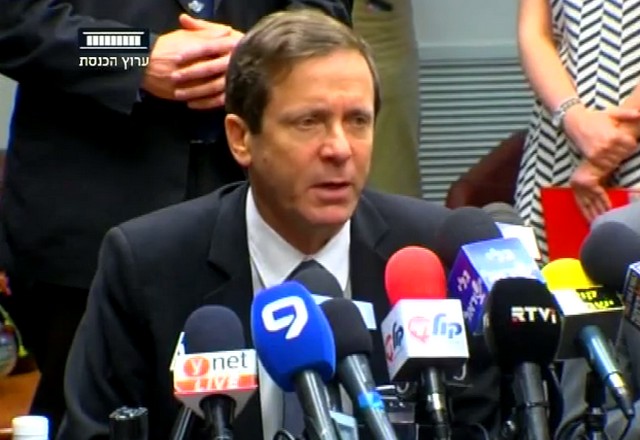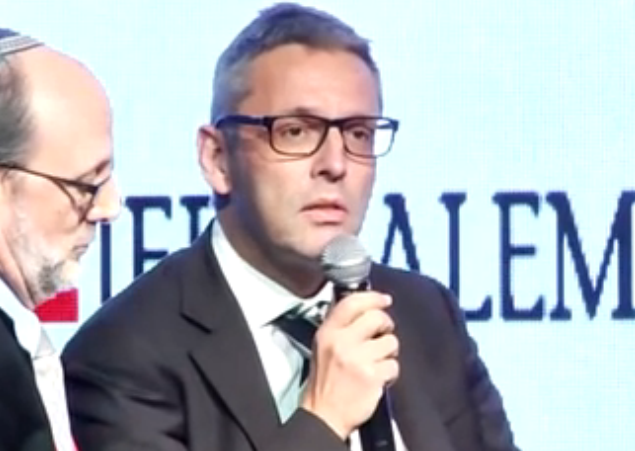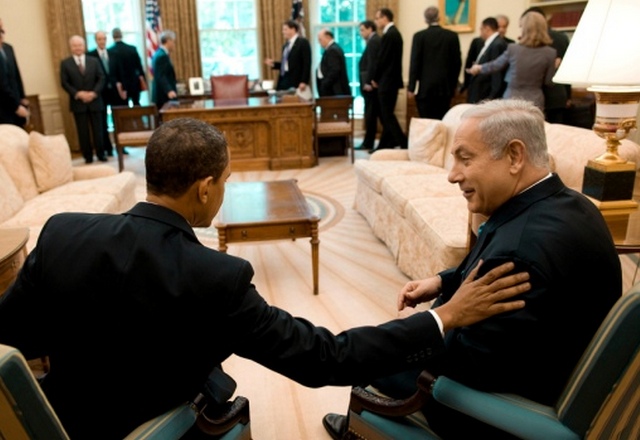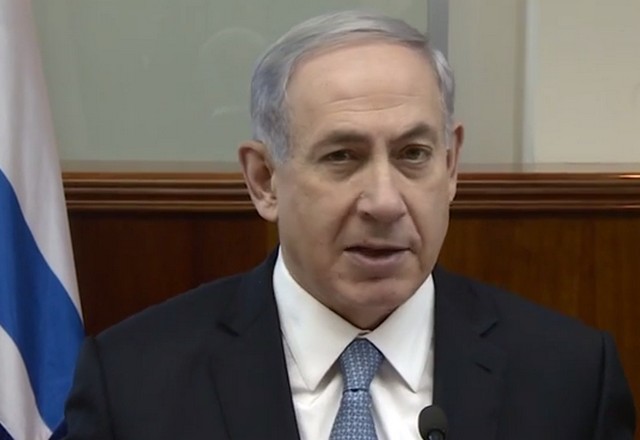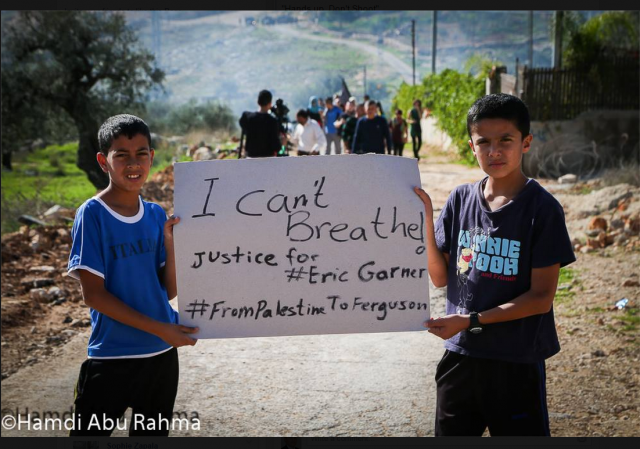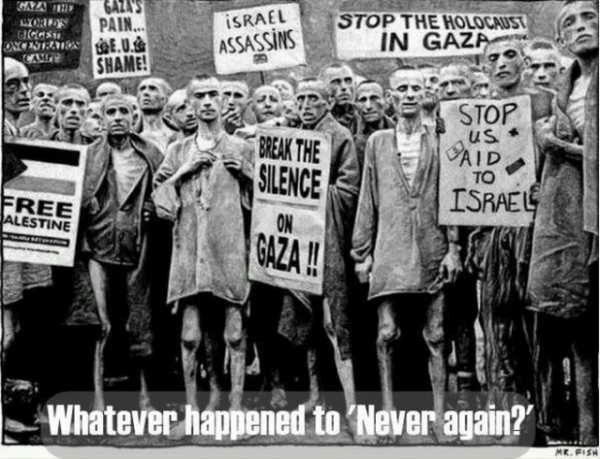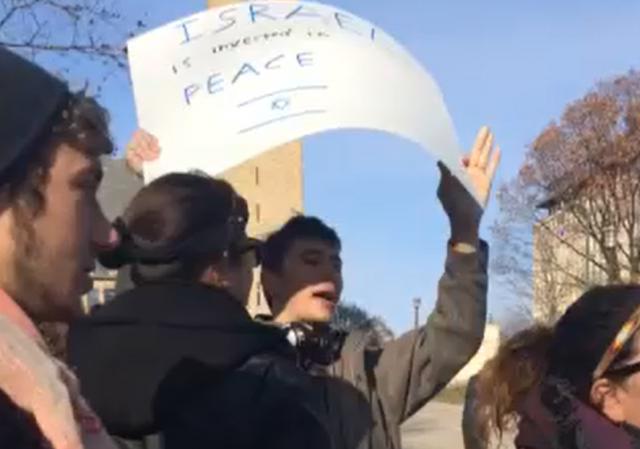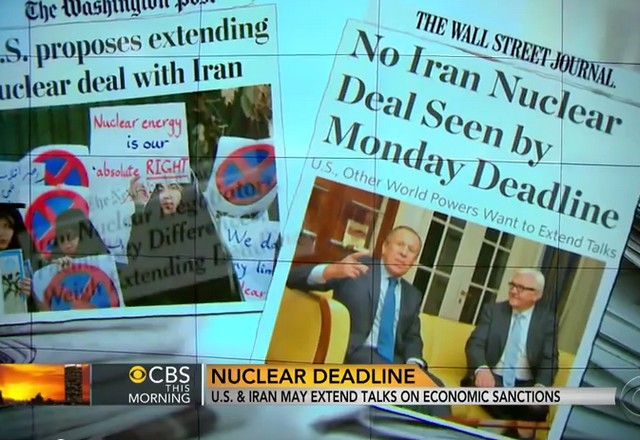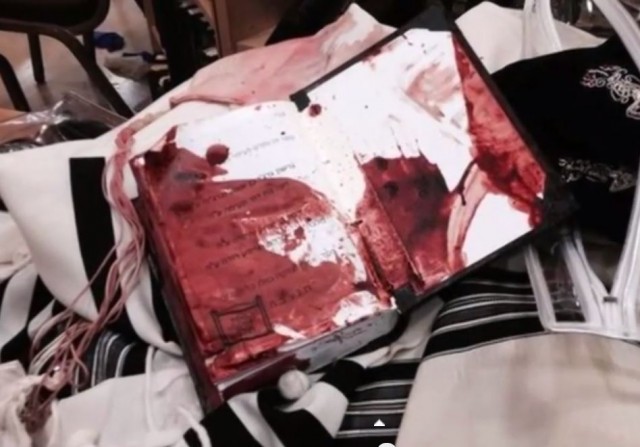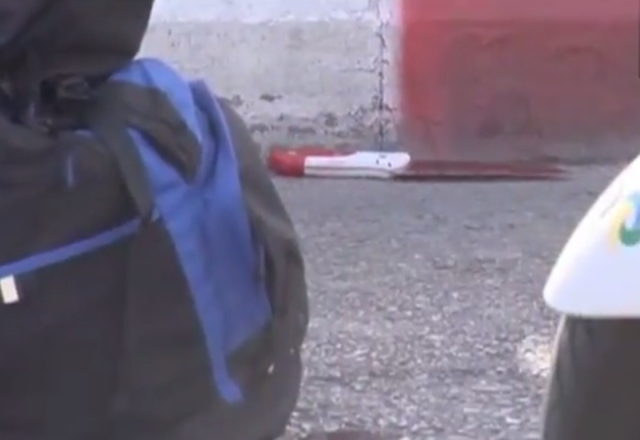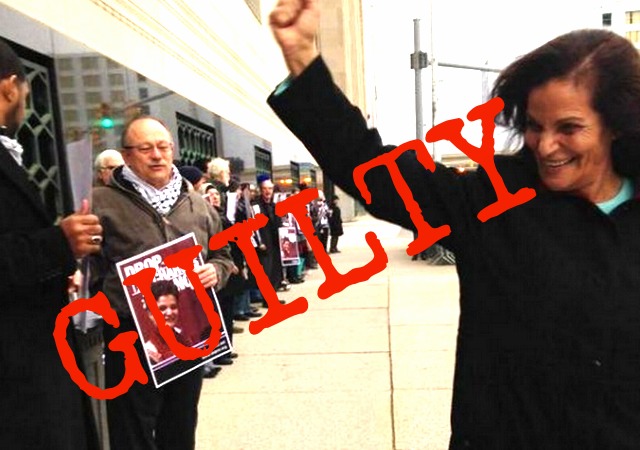Israel Tag
Palestinian Political Concrete Jungle
Seven years of Hamas control over Gaza would be gradually replaced by the Fatah-dominated PA, billions of dollars in donor aid would flow in, and the Gazan people would be liberated from the continued rule of an internationally-designated terrorist organization (and the continued need for an Israeli and Egyptian blockade around the territory). Or at least that was the idea. But all these plans are on hold as Hamas and the PA engage in a game of political chicken, staring each other down , a reality confirmed to me over the past month in conversations with nearly two dozen Israeli and Palestinian officials (from both Fatah and Hamas), international diplomats and non-governmental sources based in Israel and the West Bank, some of whom requested to remain anonymous so as to speak more freely.
Tzipi Livni: Abbas Torpedoed Peace Process
Livni considered it a fair framework, and Netanyahu had indicated willingness to proceed on the basis of it while saying he had reservations. But Abbas declined to give an answer in what his senior negotiator, Saeb Erekat, later described as a “difficult” meeting with Obama. Abbas remained evasive on the framework, which was never made public.One part of the framework was to accept the 1967 lines (really the 1948 armistice lines) as the basis of negotiations. In other words, Netanyahu made a major concession here and Abbas still refused to play ball. Still at the behest of the administration talks continued and a few weeks later, the Palestinians were at it again.
Then, Livni said, she looked up at a television as she awaited a cabinet meeting and saw Abbas signing letters as part of a process to join 15 international agencies — something he had said he would not do before the deadline.Abbas offered the excuse that Israel was stalling. Still, this was a unilateral action outside the framework of negotiations and a broken promise. Finally, there was this:
The Generational Battle on Campus Against Israel
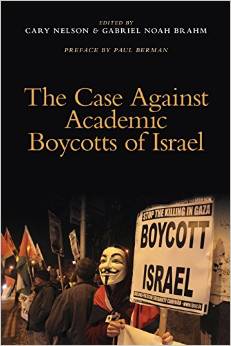 He also was interviewed on Israeli television recently.
He makes some good points, similar to those I have made in many of my speeches and appearances.
The faculty Propagandists with Ph.D's are the main problem, they use their leverage over students in the Humanities and Social Sciences to intimidate and control the agenda.
Academic BDS is a movement led by evil people, and followed by many more uninformed, misinformed and misguided dupes.
Evil can never be ignored. BDS is a pox on academia, and should be treated as such.
http://youtu.be/jQOs_lE-YFQ?t=1m1s
(Added)
I'll use this as a chance to promote my interview with Mark Levin on the topic, in case you missed it:
He also was interviewed on Israeli television recently.
He makes some good points, similar to those I have made in many of my speeches and appearances.
The faculty Propagandists with Ph.D's are the main problem, they use their leverage over students in the Humanities and Social Sciences to intimidate and control the agenda.
Academic BDS is a movement led by evil people, and followed by many more uninformed, misinformed and misguided dupes.
Evil can never be ignored. BDS is a pox on academia, and should be treated as such.
http://youtu.be/jQOs_lE-YFQ?t=1m1s
(Added)
I'll use this as a chance to promote my interview with Mark Levin on the topic, in case you missed it:
Will the New Center-Left Coalition Unseat Netanyahu?
Yet Israel’s political center is actually far larger than the parties who formally declare themselves to be “centrist.” On the key issue that defines the left-right axis, Palestinian statehood, polls have shown that as many as half of those who vote for the explicitly right-wing parties Likud, Yisrael Beytenu and even Jewish Home actually support Palestinian statehood. Countless polls suggest that Israeli centrists – usually defined by pundits as those who support Palestinian independence while distrusting Palestinian willingness to reciprocate with peace – vote for the right because they hear their skepticism reflected in the rhetoric of right-wing leaders. For 20 years, Herzog’s predecessors – Labor has seen 11 leadership changes in 22 years – have been fighting a losing battle against this vast, inchoate center. But on Wednesday night, Herzog launched the left’s most dramatic bid since the 1990s for the Israeli center’s trust.Herzog, according to Gur, no longer talks about "peace and reconciliation" but of "separation." There are two assumptions to Gur's analysis here that I'm skeptical about.
European Diplomat: Of course we hold Israel to a higher standard
"this is because you are one of us"...
Can Obama Get the Government He Wants in Israel?
Some of President Barack Obama’s advisers came to the conclusion that the time had come to remind the Israelis who is the boss. They encouraged the president to set a detailed outline for a permanent agreement between Israel and the Palestinians. They recommend that the process involve a fixed timetable for the establishment of a Palestinian state on the basis of the 1967 lines and the Arab Peace Initiative. According to the plan, a diet of “carrots” would be provided to the party that adopts the outline, and “sticks” would be the fate of the recalcitrant side. When the Israeli voter goes to the polling booth, he or she would know whether they vote for the carrot or the stick. The Palestinian leadership and public will also clearly envisage the end of the occupation, with the advantages that follow the end of it, vis-a-vis perpetuation of the conflict and the drawbacks involved. ...
Will Early Elections in Israel End Netanyahu’s Career?
According to a Channel 10 poll, Likud would win 22 seats, Jewish Home 17, Labor 13, Yisrael Beytenu 12, Moshe Kahlon’s as-yet-unnamed party 12, Yesh Atid nine, the ultra-Orthodox United Torah Judaism eight, Shas seven, Meretz seven, Hatnua four and the Arab parties nine. A survey by Channel 2 showed Likud with 22, Jewish Home 17, Labor 13, Kahlon and Yisrael Beytenu with 10 apiece, Yesh Atid with nine, Shas with nine, United Torah Judaism with eight, Meretz with seven, Hatnua with four, and the Arab parties with 11. Both polls would have made pleasant reading for Likud leader Netanyahu, showing a strengthening of the right, and numerous potential coalition options for him.However, a lot can happen in four months. For example two years ago, Likud created a joint list with Yisrael Beiteinu (Avigdor Liberman's party) and then the combined list lost ten seats in popularity polls in the final month of the campaign.
Reports: Israel bombs Syrian missile transfers to Hezbollah
Israel has carried out an air strike targeting a consignment of missiles in Syria bound for Hezbollah in neighboring Lebanon, an Israeli official said on Saturday.... "There was an air strike. The target was not a chemical weapons facility. It was missiles intended for Hezbollah," the official told Reuters.As with all such breaking events, photos and videos on Twitter are not yet verified as authentic.
IAF strikes in May 2013, targeting al-Dimas - site of today's strike - thwarted an imminent weapons transfer to #Hezbollah. #Syria
— Brooklyn Middleton (@BklynMiddleton) December 7, 2014BREAKING PHOTO - SYRIA: Moments of the massive explosions by IAF on Dimas near Damascus targeting military site. pic.twitter.com/ozVYV6xt9U
— Israel News Feed (@IsraelHatzolah) December 7, 2014Anti-Israel groups now exploiting Eric Garner death, too
Because exploiting Michael Brown and fomenting confrontation in Ferguson wasn't enough....
How the Media Aids Hamas
Matti Friedman again explains how NGO's and the media prepare the ground for anti-Israel propaganda...
Jewish Nakba Day
- Oh, those refugees whose property was taken
- Israel double-dares Arabs to seek compensation for refugees
- The other Nakbah: The ethnic cleansing of Jews in the Arab world
Sick: BDS groups spread photoshop of Concentration Camp inmates holding anti-Israel signs
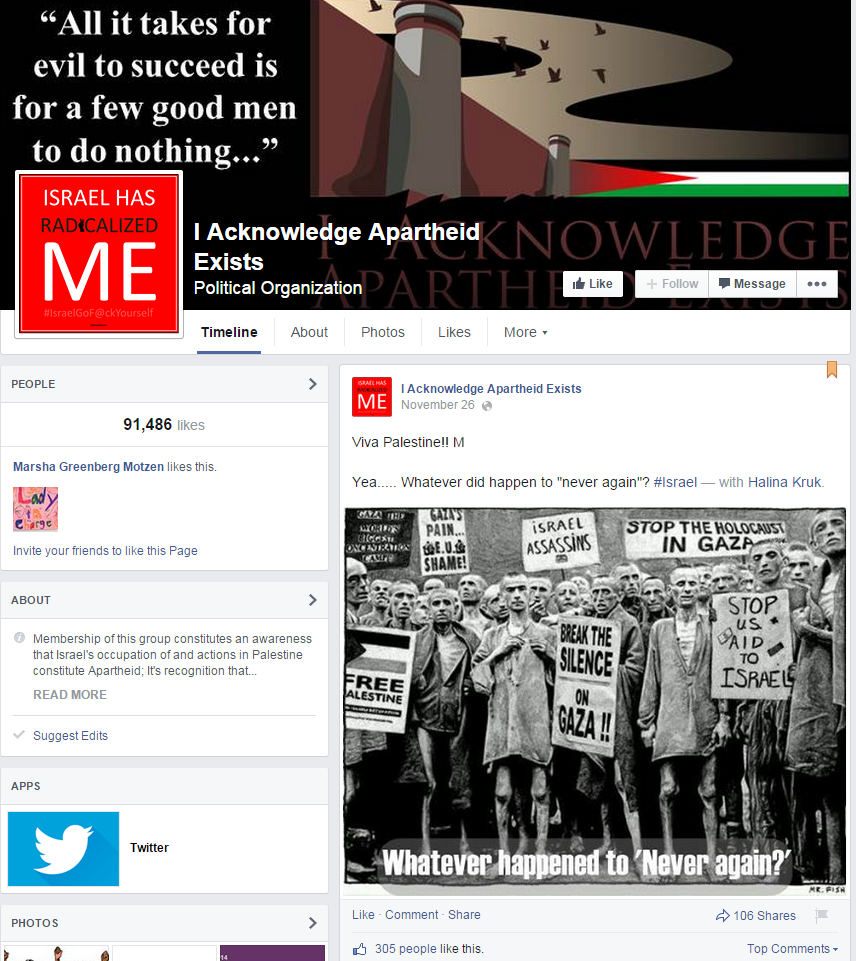 The image is being spread by others as well, such as the Central NY Committee for Justice in Palestine:
[Note 11-28-2014 10:15 p.m. - sometime tonight CNYCJP removed the image after complaints were posted in its comments in response to Legal Insurrection's coverage, and after the image was CNYCJP's Facebook page for about two days the cache version of the post is here]
The image is being spread by others as well, such as the Central NY Committee for Justice in Palestine:
[Note 11-28-2014 10:15 p.m. - sometime tonight CNYCJP removed the image after complaints were posted in its comments in response to Legal Insurrection's coverage, and after the image was CNYCJP's Facebook page for about two days the cache version of the post is here]
“I will f**king slap you” – More Cornell anti-Israel intimidation
Iran’s really, really, really good nuke week
Israel to ease self-defense gun restrictions after Jerusalem synagogue attack
HEARTBREAKING PHOTO:
- R' Moshe Twersky (60)
- R' Kalmen Levin (55)
- R' Avram Goldberg (68)
- R' Arye Kupinsky (43) pic.twitter.com/fRdpiKNdXf
— Israel News Feed (@IsraelHatzolah) November 18, 2014Israeli Prime Minister Benjamin Netanyahu accused Palestinian leaders of inciting violence and promised to “respond harshly.” In the Palestinian-controlled Gaza Strip, calls over loudspeakers praised the attackers. In East Jerusalem, crowds hurled stones at Israeli police fanning out around the neighborhood where the attackers lived. The Associated Press, citing Israeli police, said those killed included one Briton and three Americans — among them Rabbi Moshe Twersky, who taught at an English-speaking religious school in Jerusalem and was a member of one of the most respected families in Orthodox scholarship.... Twersky’s grandfather, Joseph Soloveitchik, was a renowned Boston rabbi, and his father, Rabbi Yitzhak (Isadore) Twersky, was longtime director of The Center for Jewish Studies at Harvard. Twersky’s brother, Mayer Twersky, one of the heads of Yeshiva University in New York, the flagship American school for Jewish Orthodox studies.Here is raw video of the police shooting the perpetrators, and of the victims of the attack:
Two Israelis Killed in Separate Knife Attacks Following PA Incitement
Almog Shiloni, 20, of Modiin, died of multiple wounds to his stomach and chest, an official from the Sheba Medical Center at Tel Hashomer Hospital said. “After resuscitation efforts that began in the field and continued for hours in the hospital, the stabbing victim who arrived at the hospital earlier today was declared dead,” a spokesperson announced. When Shiloni was first brought into the hospital following the attack he had no pulse, although doctors were able to restart his heart.His girlfriend, who was talking to him on the phone at the time, rushed to the scene when she heard a commotion and Almog didn't answer. When she arrived at the scene she saw "Almog lying in a pool of blood as emergency teams tried to resuscitate him." In the afternoon a 26 year old woman, Dalia Lemkus, was stabbed to death and two others were wounded in a knife attack in Gush Etzion (the Etzion Bloc) by a terrorist who was shot and wounded by a security guard.
The stabber was shot by a guard on duty at the site, police said. Initial reports indicated he was killed, but later reports dispelled that claim. Magen David Adom said he was in serious condition. A 26-year-old man suffered light-moderate injuries, and a man in his 50s was lightly hurt in the incident. Their names were not released. Channel 2 reported that the older man was driving by the scene when he saw the attack in progress, then stopped his car and wrestled with the attacker before suffering an injury to his face.Sherri Mandel, whose teenage son Kobi, was killed in 2001 during the so-called "Aqsa intifada," wrote a tribute to Lemkus, What the didn't tell you about Dalia, at The Times of Israel:
Breaking: Rasmea Odeh found guilty (Updated)
-
Jury nullification is defense strategy in Rasmieh Odeh trial
-
Will Pro-Palestinian activists clash with Judge at Rasmieh Odeh trial?
-
Devastating pre-trial rulings against Rasmieh Odeh in naturalization prosecution
-
Judge orders jurors protected from pro-Palestinian activists
-
Palestinian activist groups accused of attempting to influence jury
She was found guilty immigration fraud by way of of unlawful procurement of naturalization this afternoon.
Rasmea Odeh was found guilty! — TamamAbusalama (@TamamAbusalama) November 10, 2014
BREAKING: Rasmea Odeh found GUILTY of "unlawful procurement of naturalization" by Detroit federal jury #Justice4Rasmea — Meha (@Meha) November 10, 2014
Happy but not surprised by Rasmea Odeh guilty verdict. She committed immigration fraud. — Buber Zionist (@buberzionist) November 10, 2014
Donations tax deductible
to the full extent allowed by law.
CONTRIBUTORS
- William A. Jacobson
Founder
- Kemberlee Kaye
Sr. Contrib Editor
- Mary Chastain
Contrib Editor
- Fuzzy Slippers
Weekend Editor
- Mike LaChance
Higher Ed
- Leslie Eastman
Author
- Vijeta Uniyal
Author
- Stacey Matthews
Author
- Jane Coleman
Author
- James Nault
Author
- Mandy Nagy
Editor Emerita
- Learn more about the Contributors


